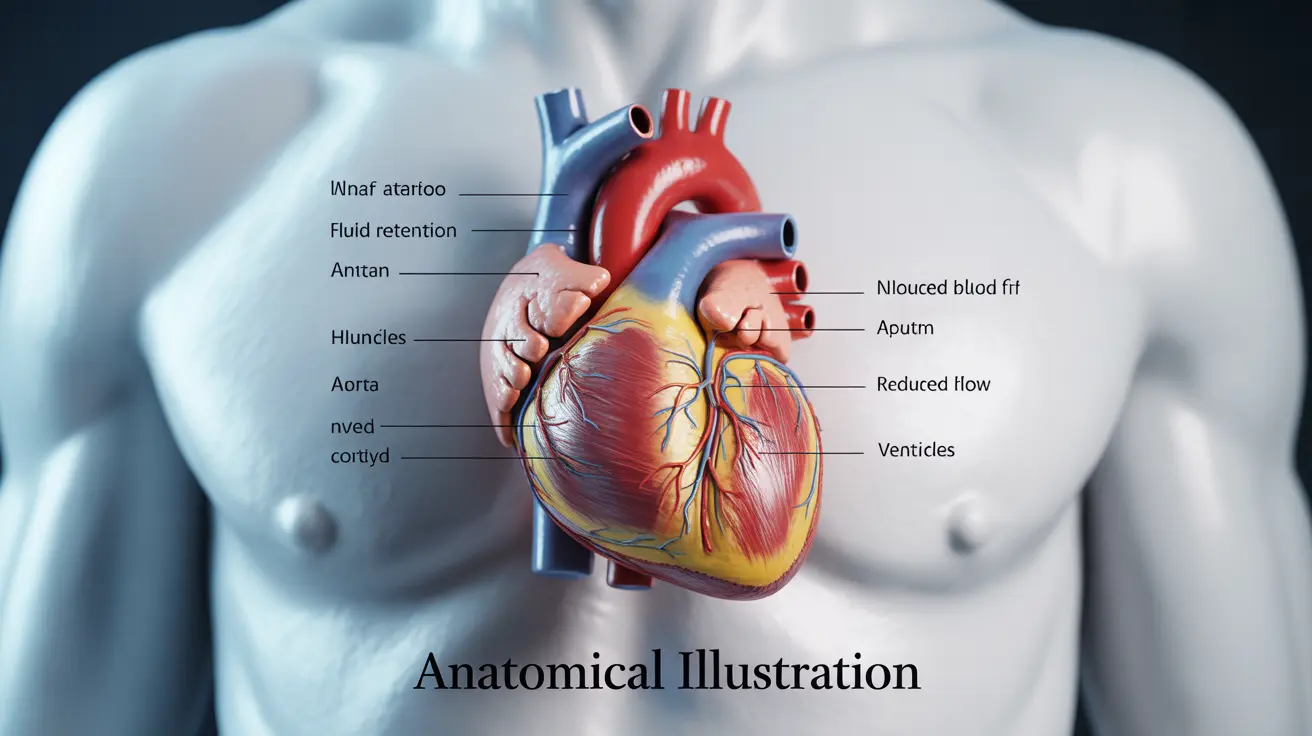Acute congestive heart failure is a serious medical condition that occurs when the heart suddenly cannot pump blood effectively throughout the body. This emergency situation requires immediate medical attention and can be life-threatening if not treated promptly. Understanding the signs, causes, and available treatments is crucial for both patients and caregivers.
While heart failure can develop gradually over time, acute episodes represent a sudden worsening of symptoms that demands urgent care. This comprehensive guide explores the essential aspects of acute congestive heart failure, helping you recognize when emergency care is needed.
Recognizing the Warning Signs
Early recognition of acute congestive heart failure symptoms can save lives. The most common warning signs include:
- Sudden, severe shortness of breath
- Rapid or irregular heartbeat
- Extreme fatigue and weakness
- Chest pain or pressure
- Sudden weight gain from fluid retention
- Difficulty breathing when lying flat
- Persistent coughing or wheezing
- Confusion or altered mental state
These symptoms typically develop rapidly and represent a significant change from a person's usual condition. Anyone experiencing these symptoms should seek immediate medical attention.
Understanding the Causes and Risk Factors
Acute congestive heart failure can be triggered by various factors and conditions:
Primary Causes
- Heart attack or severe coronary artery disease
- Severe high blood pressure
- Heart valve problems
- Severe infections affecting the heart
- Drug or alcohol abuse
- Severe emotional or physical stress
Risk Factors
- Advanced age
- Previous heart conditions
- Obesity
- Diabetes
- High blood pressure
- Smoking history
- Family history of heart disease
Emergency Diagnosis Methods
When a patient arrives at the emergency department with suspected acute congestive heart failure, medical professionals employ several diagnostic tools:
- Physical examination
- Blood tests (including BNP levels)
- Chest X-rays
- Electrocardiogram (ECG)
- Echocardiogram
- Cardiac catheterization (in some cases)
Immediate Treatment Approaches
Treatment for acute congestive heart failure focuses on stabilizing the patient and improving heart function. Common interventions include:
Medical Interventions
- Oxygen therapy
- Diuretics to remove excess fluid
- Medications to improve heart function
- Blood pressure management
- Mechanical ventilation if necessary
Additional Support
- Continuous monitoring
- Fluid and salt restriction
- Position changes to improve breathing
- Pain management if needed
Prevention and Long-term Management
After recovering from an acute episode, preventing future occurrences becomes crucial. Key preventive measures include:
- Regular medical check-ups
- Medication compliance
- Blood pressure monitoring
- Weight management
- Dietary modifications
- Regular, appropriate exercise
- Stress reduction techniques
- Smoking cessation
Frequently Asked Questions
What are the common symptoms that indicate acute congestive heart failure? The most common symptoms include sudden severe shortness of breath, rapid or irregular heartbeat, extreme fatigue, chest pain, sudden weight gain from fluid retention, and difficulty breathing when lying flat.
What causes acute congestive heart failure and who is at risk of developing it? Acute congestive heart failure can be caused by heart attacks, severe high blood pressure, valve problems, or infections. Those at higher risk include older adults, people with existing heart conditions, diabetics, and individuals with high blood pressure or obesity.
How is acute congestive heart failure diagnosed in an emergency setting? Emergency diagnosis typically involves physical examination, blood tests (particularly BNP levels), chest X-rays, ECG, and often an echocardiogram. These tests help determine the severity and cause of the condition.
What are the immediate treatments available for managing acute congestive heart failure? Immediate treatments include oxygen therapy, diuretics, medications to improve heart function, blood pressure management, and possibly mechanical ventilation. Continuous monitoring and supportive care are essential components of treatment.
How can lifestyle changes help prevent or reduce the risk of acute congestive heart failure? Key lifestyle changes include maintaining a heart-healthy diet, regular exercise as approved by your doctor, stress management, medication compliance, regular medical check-ups, and avoiding smoking and excessive alcohol consumption.




